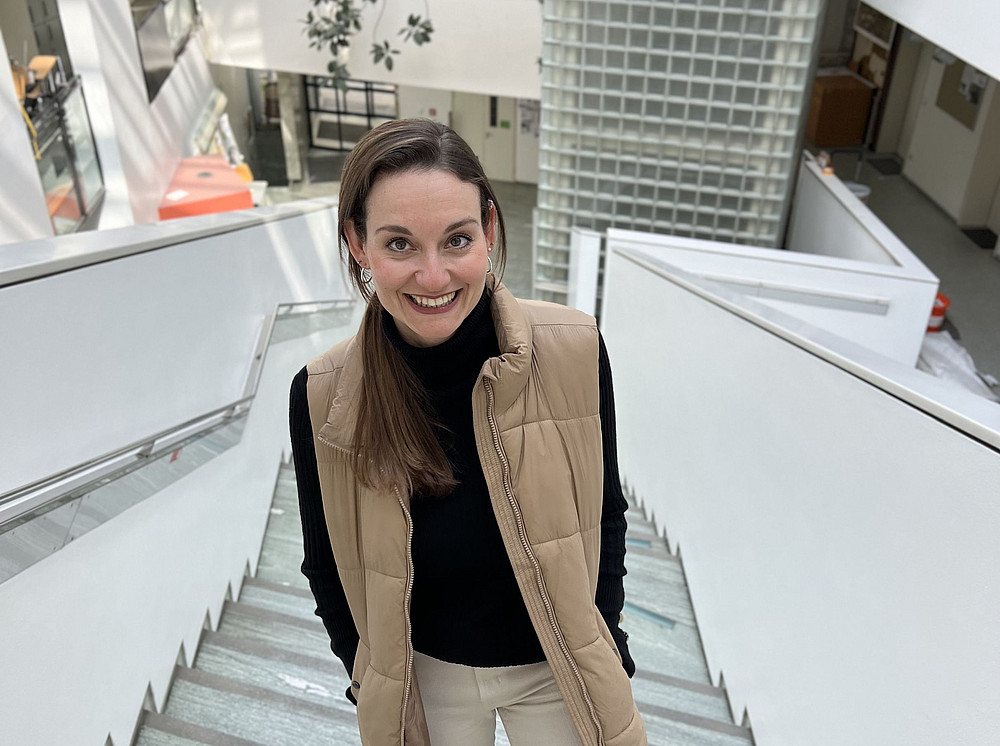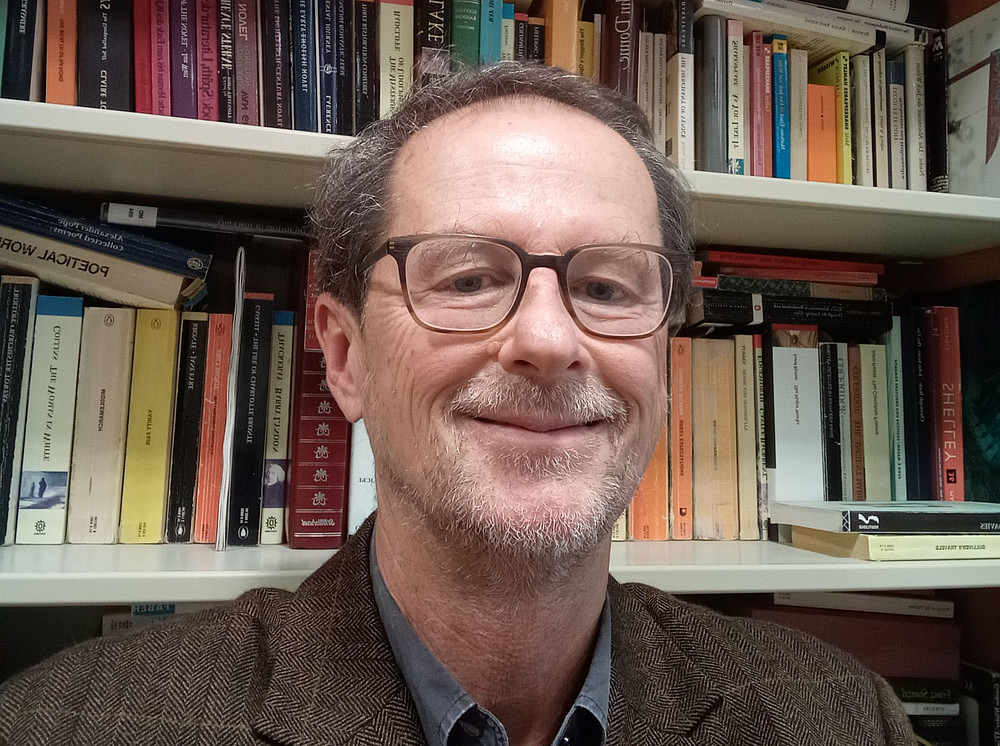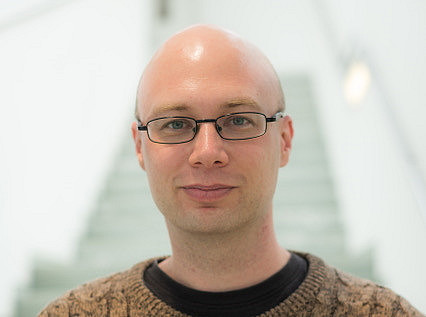Three questions for...
Researchers and staff at the Institute of English Studies
Mag.phil. Dr.phil. Lisa Kornder
University Assistant (PostDoc) at the Department of English Studies
What exactly do you do at the Institute of English Studies?
I am a linguist and conduct research in the field of bilingualism and second language acquisition. In my research, I focus on the question of how second language learners and multilingual speakers learn pronunciation in their second language. I am also interested in what influence the acquisition of a second language can have on pronunciation characteristics in a speaker's first language. Why, for example, do some bilingual speakers have a non-native accent in their first language? I also teach courses in the field of second language acquisition, bilingualism and phonetics.

What do you particularly like about your work?
It's definitely the combination of research and teaching. When you spend most of your time doing research - which in my case involves evaluating extensive language data sets and carrying out statistical analyses - exchanging ideas with students provides valuable balance. I wouldn't want to miss either.
Have you ever experienced anything particularly funny?
Creative emails from students often make me smile. Just recently, I received an email from a student who had submitted his thesis late. The reason: his laptop had fallen out of the window. Unfortunately, this happened just as he was about to submit his thesis.
Ao.Univ.-Prof. Mag. Dr.phil. Martin Löschnigg
Head of the Department of English Studies at the University of Graz
You are head of the Department of English Studies. What does English Studies involve?
English studies are concerned with the English language and the culture of English-speaking countries. This includes countries such as the United Kingdom, Ireland, Canada, Australia and parts of the Caribbean, but also some African countries and India, where English is still an important lingua franca due to their history. The USA, on the other hand, has long been the subject of American Studies. Here in Graz, we have separate institutes for English Studies and American Studies, but they work closely together, as English and American Studies is a joint field of study. This includes literary and cultural studies, linguistics, practical language training and subject didactics, i.e. specialised training in the teaching of English.

What are your particular interests in research and teaching?
I am a literary scholar and have studied narrative literature, its theory and its manifestations intensively. A well-known contemporary English writer, Graham Swift, once described humans as "the story-telling animal", and I have always been fascinated by the diversity and meaningful function of stories. This particularly applies to our own life stories, which is why I have specialized in autobiography and autobiographical storytelling. Other important areas of my work are war literature (especially the literature of the First World War) and the literature and culture(s) of Canada. I have always enjoyed teaching Canadian literature.
What fascinates you about literature?
I believe (even if it sounds very idealistic) that literature can still contribute greatly to a better understanding of our lives and our relationships with other people or - in the case of ecological literature, which my wife is involved with - with our environment.
Nicholas Philip Scott, MA
Lecturer at the Department for English Studies at the University of Graz
You are originally from Great Britain. What brought you from the UK to Graz?
After completing my studies in the UK, I didn't know exactly what I wanted to do next. Fortunately, the opportunity arose to come to Austria for a year and work at the University of Graz. 15 years later, I'm still here, there's obviously something about this place I can't get enough of.

Is there a course that you particularly enjoy teaching?
I enjoy teaching all of my courses, but my favorite is Professional Speaking Skills. In this course, I help student teachers to improve their language skills so that they are well prepared for their future careers in the classroom. I am always surprised at how many talented, highly motivated students we have here in Austria who will make wonderful English teachers in the future.
What are your highlights outside of teaching?
Outside of teaching, I organize events for students on behalf of the Anglo-Austrian Society. Last month, for example, I hosted a pub quiz in the Uni Café, in which over 60 students took part. I had a lot of fun challenging them with interesting and musing trivia, and I think everyone had a great evening.